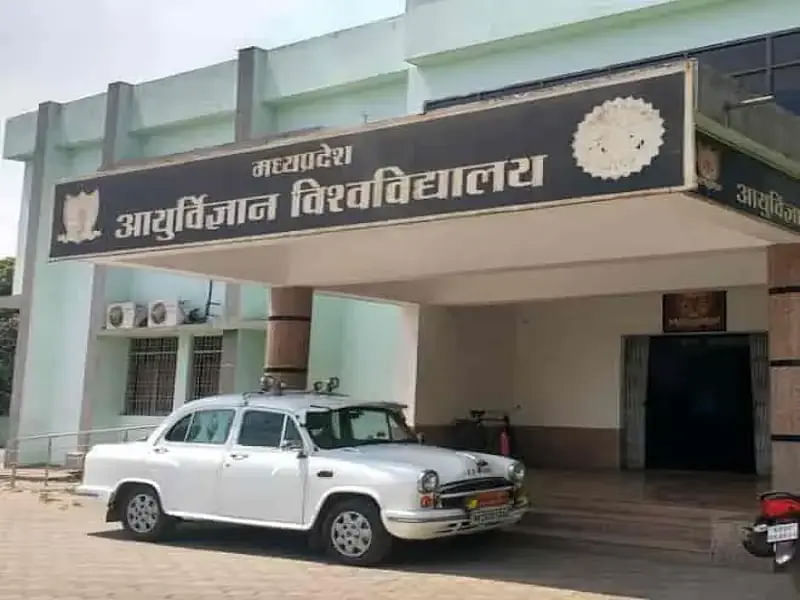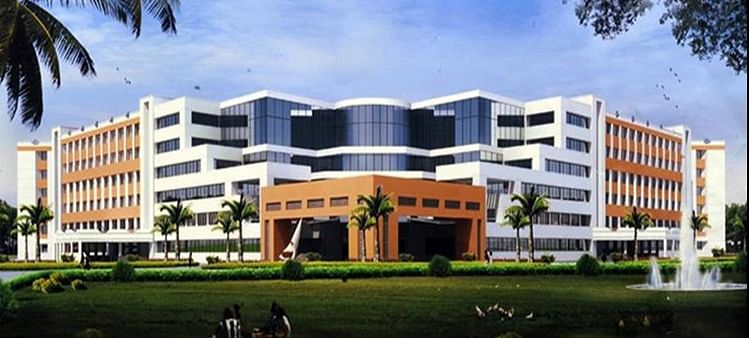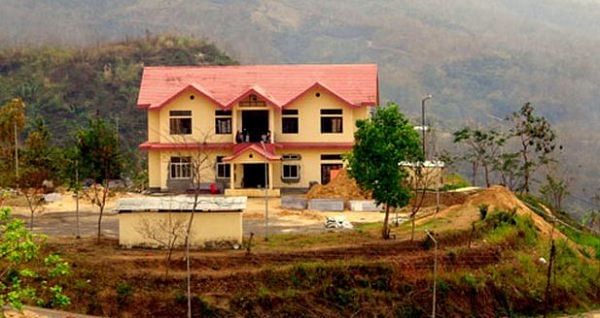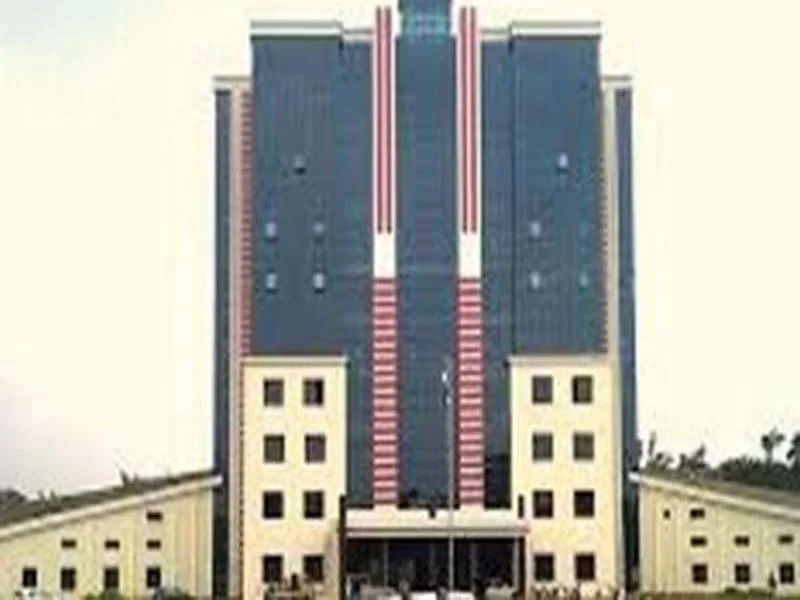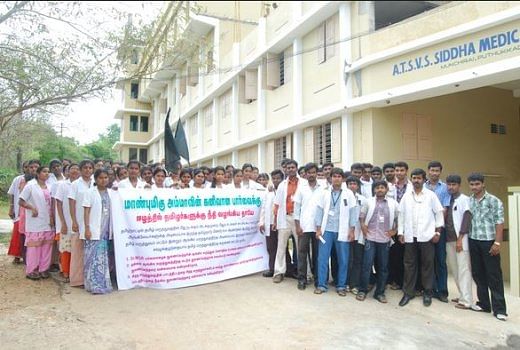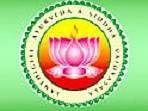BSMS Syllabus and Subjects

BSMS syllabus aims to create skilled professionals in the various facets of Siddha medicine and surgery along with the capability to meet the professional demands of the industry. Hence, the job scope of BSMS is extensive in the healthcare and pharmaceutical industries.
The BSMS subjects focus on core concepts of Siddha medicine and related areas such as Ayurveda and herbal medicines. Some of the areas of study in the BSMS course are medicinal botany, pathology, pharmacology, general medicine, obstetrics, forensics, pediatrics, etc.
Table of Contents
Semester Wise BSMS Syllabus
The BSMS syllabus focuses on studying the various concepts of medicinal botany, obstetrics, gynecology, pediatrics, pharmacology, forensic medicine, etc. The four and half-year long BSMS course is divided into 3 semesters. Each semester has a span of 1.5 years. The semester-wise BSMS syllabus is provided below:
BSMS 1st Year Syllabus
BSMS syllabus 1st year includes the foundational concepts during the coursework of 1.5 years. The subjects in the first-year BSMS syllabus are given below:
|
BSMS Subjects in the 1st professional |
|
Regional Language |
|
Communicative English |
|
Siddha Maruthuva Adippadai Thathuvangalum Varalarum |
|
Uyir Vedhiyal (Bio-Chemistry) |
|
Maruthuva Thavaraiyal (Medicinal Botany And Pharmacognosy) |
|
Nunnuyiriyal (Microbiology) |
Practical Topics in the BSMS Syllabus 1st year
Some of the practical topics in the BSMS 1st year syllabus are given below:
- Microscopy - Light, Dark Ground, Fluorescent, Electron
- Bacterial identification
- Submission of Herbarium
- Anatomical study of plant parts
BSMS 2nd Year Syllabus
The BSMS subjects in the second year are given below:
|
BSMS Subjects in the 2nd professional |
Paper I |
Paper II |
|
Udal Koorugal (Anatomy) |
Osteology With Applied Anatomy, Arthrology With Applied Anatomy |
Nervous System, Cardiovascular System, Endocrinology |
|
Udal Thathuvam (Physiology) |
Thathuvas, Lymbootham, Kanmendryam, Dhasavayu |
General Physiology, Muscle Physiology, Renal Physiology |
|
Materiamedica - Plant Kingdom |
Properties of drug, Vibagam, Prabhagam |
Ulogangal, Pancha Sootham, Pashanangal, Karasaram |
Practical Topics in the 2nd year BSMS Syllabus
Some of the practical topics in the BSMS 2nd year syllabus are given below:
- Whole body dissection
- specimen demonstration.
- Examination of Udal kattugal
- Examination of Envagai Thervu
BSMS 3rd Year Syllabus
The BSMS syllabus for the third year is given below:
|
BSMS Subjects in the 3rd professional |
Paper I |
Paper II |
| Noi Naadal |
Siddha Pathology, Mukkutra iyal, Thega ilakkanam |
Immunopathology, Haemodynamic, Hematology |
| Sattam Sarntha Maruthuvam (Forensic Medicine) |
Introduction, Medical Law and Ethics, Identity, Medico legal Autopsy |
- |
| Nanju Maruthuvam (Toxicology) |
- |
- |
| Noi Anugavithi Ozhukkam |
- |
- |
| Research Methodology And Medical Statistics |
Areas of Research Interest in Siddha, Epidemiological studies |
Research Projects and Presentation |
Practical Topics in the 3rd year BSMS Syllabus
Some of the practical topics in the BSMS 3rd year syllabus are given below:
- Interpretation of Enn Vagai Thervukal
- Examination of Ezhu Udal Thathukkal
- Clinical applications of individual Udal Thaathu
- Examination of Ezhu Udal Thathukkal
BSMS 4th Year Syllabus
The subjects in the BSMS final year syllabus are given below:
|
BSMS Subjects in the 4th professional |
|
Noi Anugaa Vidhi Ozhukkam |
|
Noi Naadal Noi Mudhal Nadal |
|
Nanju Nool and Maruthuva Neethi Nool |
Practical Topics in the 3rd year BSMS Syllabus
Some of the practical topics in the BSMS final year syllabus are given below:
- Clinical Applications of Three Humours ( Vaatham, Piththam, Kabham)
- Manikkadai Noo
- Neerkkuri and Neikkuri
- Clinical Applications of Individual Humours
Note: This is the standard structure of the BSMS syllabus. Students can access to BSMS syllabus pdf from the college website to know more information about the course curriculum.
BSMS Subjects
The BSMS subjects provide in-depth knowledge and approach to the students regarding the various facets of Siddha Medicine and the adjoining areas of pharmacology, toxicology, herbal medicine, and pharmaceuticals. Additionally, the study of Ayurveda is also included in the subject list of the BSMS course syllabus. The BSMS subjects provided by renowned colleges around the country are given below:
Core BSMS Subjects
Some of the core subjects in the BSMS Syllabus are given below:
- Modern Pathology
- Siddha Pathology
- Obstetrics and Gynaecology
- National Health Policies and Research
- Toxicology and Forensics
- Siddha Medicine Fundamentals
- Pharmacognosy
- Reports of Medical Statistics
- Medicinal Botany
- Varmam Therapy
- Research Methodology
- Community Medicine and Hygiene
BSMS Subjects in Detail
The BSMS course structure focuses on core areas in the field of Siddha medicine and adjoining areas of study. A detailed view of some of the subjects in the BSMS syllabus is given below:
|
BSMS Subjects |
Topics Covered |
|
Uyir Vedhiyiyal (Biochemistry) |
Chemistry of Carbohydrates, Chemistry of Lipids, Chemistry of Proteins, Nucleic acids, Biotechnology |
|
Maruthuva Thavaraiyal (Medicinal Botany And Pharmacognosy) |
Taxonomy of Angiosperms, Study of following anatomical structures, Plant Ecology, Study of organized raw drugs based on their morphology |
|
Anatomy |
Osteology With Applied Anatomy, Angiology, Venous System, Lymphatics, Respiratory System |
|
Physiology |
Ninety-six fundamental principles (Thathuvas) and their details, Development of Embryo according to Siddhars’ concepts, Three humoural theories Vatham, Mental sheath Siddhars concept of Nadi |
|
Principles Of Siddha Pathology |
Introduction to Siddha Pathology, Interrelations between five elements, six tastes, and three humors – abnormalities during derangements, Mukkutra iyal (Vatham – Pitham – Kapham), Derangements of Uyir thathukal |
|
Principles of Modern Pathology including Clinical Pathology |
Introduction of Pathology, Immunopathology, Haemodynamics, Inflammation and wound healing, Infectious diseases |
BSMS Course Structure
The BSMS course structure is curated in a manner to provide students with a core understanding of the subject matter along with inculcating a variety of professional skills. The course structure entails a full-fledged understanding of the course and also prepares candidates as per professional standards. The course structure for the BSMS course syllabus is mentioned below:
- III Semesters
- Core Subjects
- Research-Based Submissions
- Internal Assessment
- Viva-Voce
BSMS Teaching Methodology and Techniques
The BSMS syllabus takes into account a variety of teaching methods and approaches along with the traditional lecture-based classes. Students are also trained in core areas of research and development, diagnostic approaches, understanding of herbal species, drug manufacturing, and nutrition development. Mentioned below are the some of teaching methodologies and techniques inculcated within the BSMS course syllabus:
- Academic Lectures
- Holistic Teaching and Approach
- Conceptualized Learning
- Individual Projects
- Group Projects
- Field Survey
- Seminars
- Workshops with Industry Professionals
BSMS Projects
The BSMS projects are given to students to gain a better understanding of their area of study. The BSMS projects can become a launching pad for various successful careers in the field of Siddha Medicine. Some of the popular BSMS projects topics are listed below:
- Lifestyle management and the improvement provided through yoga practices
- Impact of Ayurveda on maintaining occupational hazards and Ailments
- Pathyapathya’s impact in containing various ailments and diseases
- Ayurvedic formulation and its increase with the help of biotechnology: An analysis
BSMS Reference Books
The BSMS reference books help the candidates in gaining a broader understanding of the course tenets in the field of Siddha medicine. Students are provided a detailed understanding of the course to develop and inculcate their analogies and approaches. Mentioned below is a list of popular books under the BSMS syllabus for reference:
|
Name of the Books |
Authors |
|
Siddhas: Masters of Nature |
R Palpandian |
|
Herbs of Siddha Medicine |
J Ramachandran |
|
Sound Medicine |
Kulreet Chaudhary |
|
Siddha Medicine |
Ramon Martinez Lopez |
|
Indian Systems of Medicine |
Vohora and Hameed |
Top BSMS [Bachelor of Siddha Medicine and Surgery] Colleges
BSMS Fee Structure
FAQs on BSMS Syllabus and Subjects
Q: What is the 1st year syllabus of BSMS?
Q: What are the core subjects of BSMS?
Q: What are the practical subjects in BSMS?
Q: What are the BSMS projects?
Q: What are the important books for BSMS?
